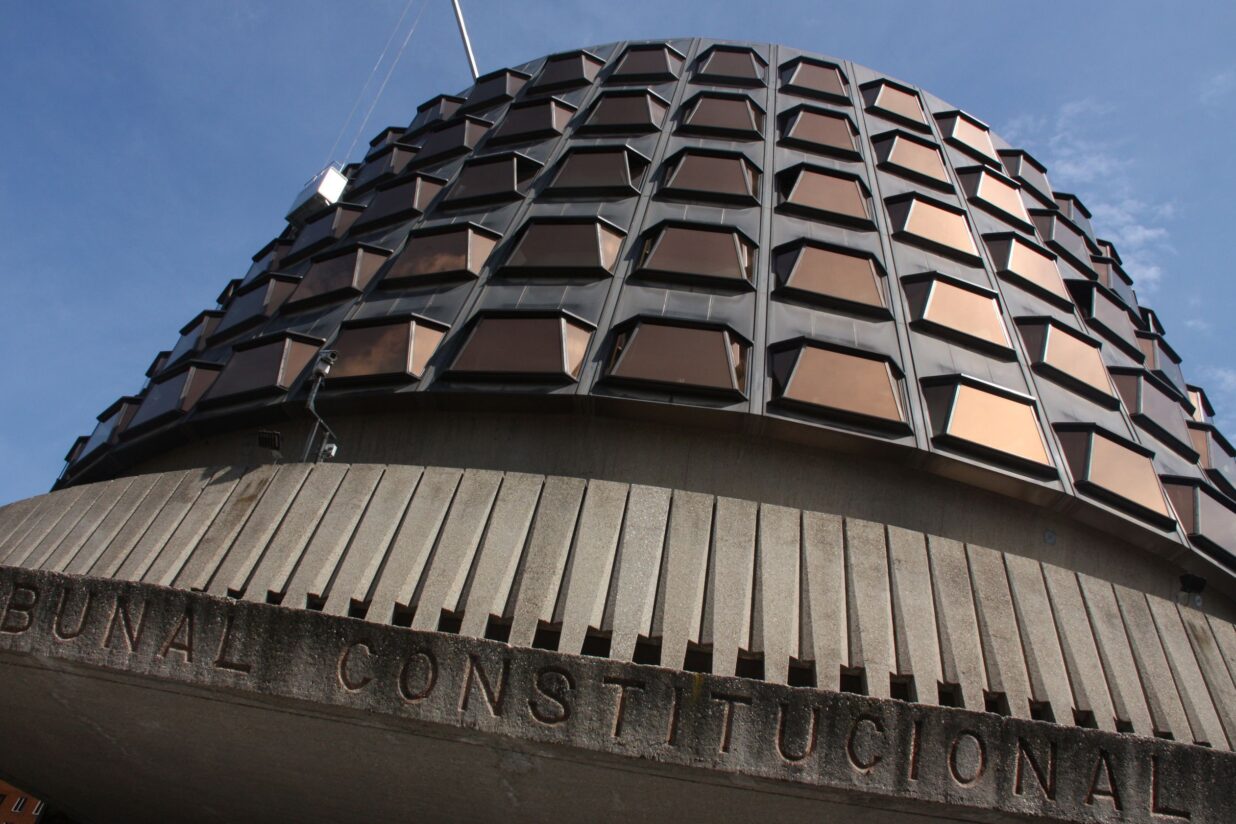25.03.2014 - 19:42
The Spanish Constitutional Court (TC) has unanimously rejected the declaration of sovereignty passed by the Catalan Parliament on January 23, 2013. The court partially accepted the appeal brought by the Spanish Government. It considers the first point to be “null and inconstitutional”: “Sovereignty. The Catalan people have, by reason of democratic legitimacy, political and legal sovereignty. According to the judges, the text violates Articles 1.2 and 2 of the Spanish Constitution and Articles 1 and 2.4 of the Statute of Autonomy of Catalonia. But it does not find the reference to Catalonia’s right to decide within a legal framework unconstitutional. The Spanish Government presented an appeal of unconstitutionality to the court because it considers the declaration, beyond its political value, to have legal standing.
Pro-sovereign parties reject the Constitutional Court ruling
CiU, ERC, ICV-EUiA, and the CUP all coincided in not recognizing the ruling of the Constitutional Court which rejected the Catalan Parliament’s Declaration of Sovereignty, approved on January 23, 2013. CiU said it didn’t give any credence to the Court’s resolutions while ERC encouraged people to respond to the ruling on November 9th—the date of Catalonia’s referendum on independence. ICV-EUiA reaffirmed the objective of exercising the right to decide, while the CUP encouraged all political forces to “exercise that which the declaration claims”.
Unionists take advantage of the ruling to demand that the referendum be sidelined
The unionist parties in the Catalan Parliament took advantage of the Constitutional Court ruling against the Declaration of Sovereignty to demand that the government abort the process of self-determination. PSC, PP, and C’s coincided in pointing out that they each had warned that the declaration would meet this fate. PSC’s parliamentary spokesperson, Maurici Lucena, believes that the ruling is “an opportunity for starting over” and called on President Mas to “make an effort” to do so. These things happen, according to Lucena, due to recognizing that the referendum “is desirable” but that it can only be carried out “through the path of agreement between governments, no matter how hard it is, and not matter how long it takes. Any shortcut leads to problems,” he said. Lucena believes that, in any case, the Constitutional Court ruling—which the Socialists now call “the most obvious outcome”—is “not good news for the Parliament”.
Òmnium accuses the Court of attacking the Parliament’s democratic legitimacy
Òmnium Cultural considers the decision of the Constitutional Court against the Parliament of Catalonia’s Declaration of Sovereignty out of line and defends that Catalonia is a sovereign political and legal subject. It thereby calls on citizens to “take advantage of the democratic right to decide the political future of the people of Catalonia with the ballot boxes on next November 9th”.
For Òmnium, the court ruling “is an attack on the democratic legitimacy of the Parliament” and “demonstrates that the court cannot be an arbiter of the process”. In this sense, it gives support to the initiative in the Parliament to demand that the president of the Constitutional Court, Francisco Pérez de los Cobos, and judges Pedro González-Trevijano and Enrique López recuse themselves “for their lack of impartiality”.
Spanish Court says right to decide is constitutional if it doesn’t mean self-determination
On the other hand, the Court declared that the references to the “right to decide of the citizens of Catalonia” are constitutional because they can be interpreted in conformance with the constitution since, according to the ruling, they don’t consecrate a right of self-determination not recognized in the constitution, but rather a political desire that can only be achieved through a process that is adjusted to the constitutional legality with respect to the principles of “democratic legitimacy”, “pluralism” and “legality”.
Pressure from the Spanish Government
The Spanish Government had put a lot of pressure these last few months in order to get a ruling against the declaration. The Vice President of the Spanish Government, Soraya Sáenz de Santamaría said that the declaration had to be annulled because in addition to having “legal standing”, it had “very clear effects on the consequent declarations with respect to the title of sovereignty, which corresponds to the whole of the Spanish people”.
It is the first time in the history of the democracy of the Spanish State that a declaration of a parliament has been suspended. In fact, the Constitutional Court had already preliminarily suspended a declaration of the Catalan Parliament in May of last year, when the Spanish Government brought an appeal.
Now it will have to be seen what consequences can be derived from the definitive suspension of the declaration, since the other decisions that come out of it could also be suspended, like for example the creation of the National Transition Advisory Council.
The appeal from the Attorney General put emphasis on the fact that the Catalan people could not be a “sovereign political and legal subject”, and that, in any case, the sovereignty for deciding on a hypothetical secession belonged to the whole of the Spanish people. According to the Attorney General’s brief, the declaration of sovereignty approved by the Catalan Parliament is an “open challenge to the constitution” with “political and legal ramifications”. For the Attorney General, that the Catalan people be defined as a “sovereign political and legal subject” is “no more and no less than an act of constituent power” which gives the Catalan people the right of secession.
On this page, you can find many translations of the text approved by the Parliament of Catalonia.



